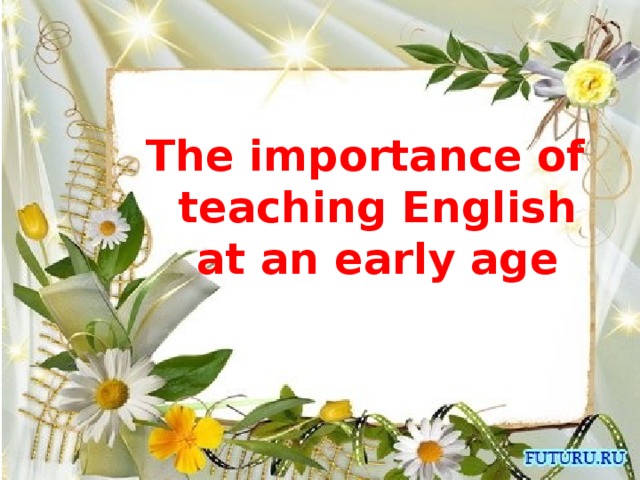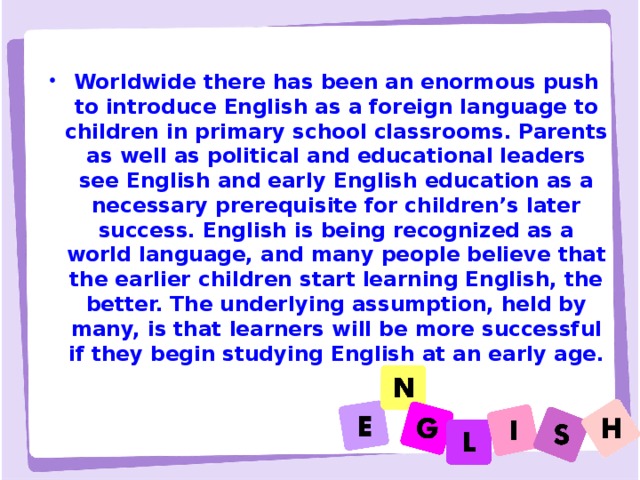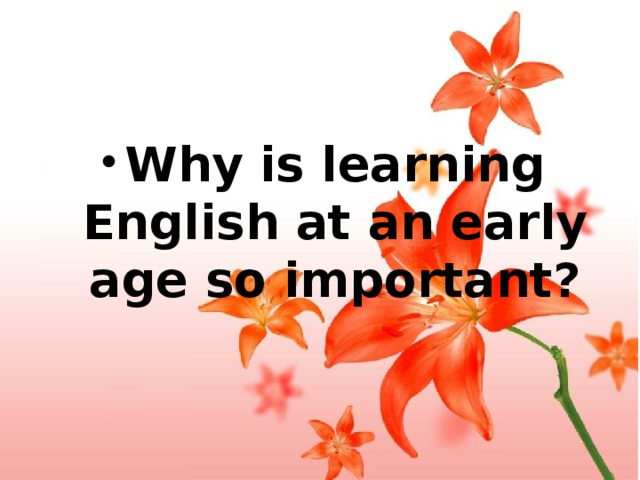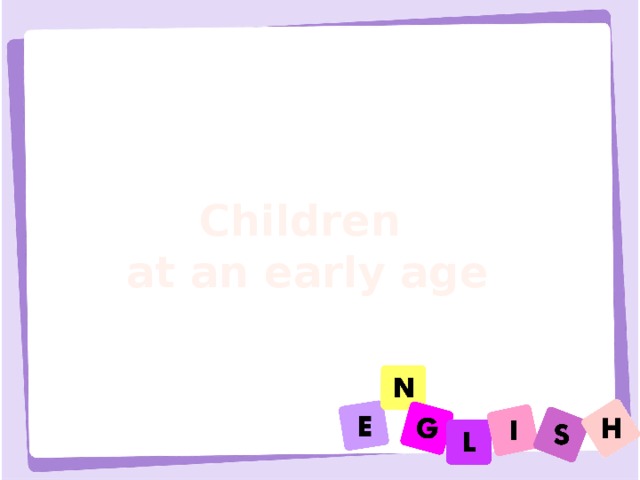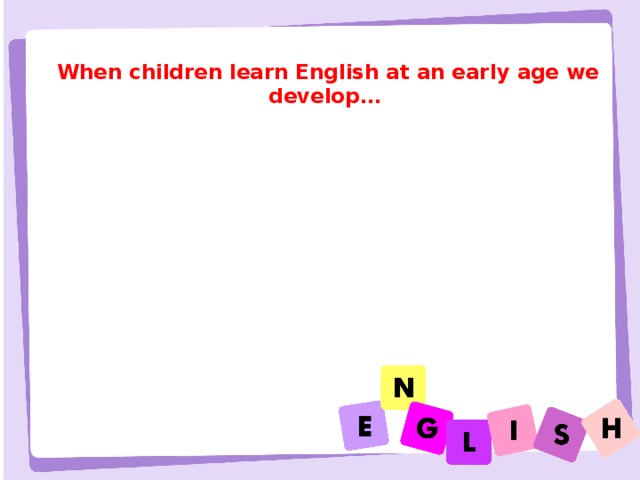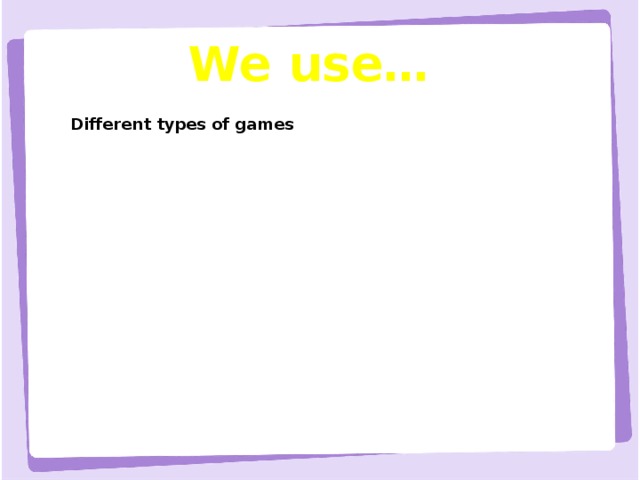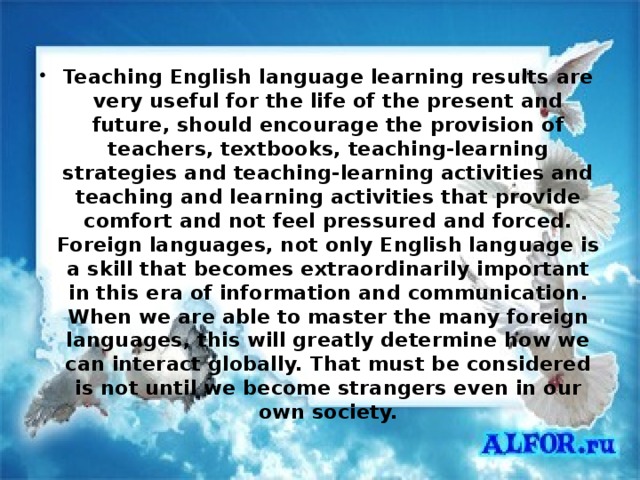Worldwide there has been an enormous push to introduce English as a foreign language to children in primary school classrooms. Parents as well as political and educational leaders see English and early English education as a necessary prerequisite for children’s later success. English is being recognized as a world language, and many people believe that the earlier children start learning English, the better. The underlying assumption, held by many, is that learners will be more successful if they begin studying English at an early age.
The early years are recognised as the foundation years for children’s development. In particular, the first six years are crucial for young children in developing their first language and cultural identity, and it is during these early years that children build up their knowledge of the world around them. For children from language backgrounds other than English, the language or languages of the home that have been used since birth are the basis for developing meaningful relationships and learning about meaningful communication and interaction. Language is the most powerful tool in the development of any human being. It is undeniably the greatest asset we possess. A good grasp of language is synonymous with a sound ability to think. In other words language and thought are in separable . Language has a major role in supporting children’s process of identity formation and in helping them understand where they fit in the new environment they are entering. The acquisition of language is essential not only to children’s cognitive development, but also to their social development and wellbeing. For young children interaction with adults and other children is the key to the acquisition of language. For infants and toddlers their early interaction with parents and caregivers provides the basis for communication and learning in both the first or home language and in the second language
